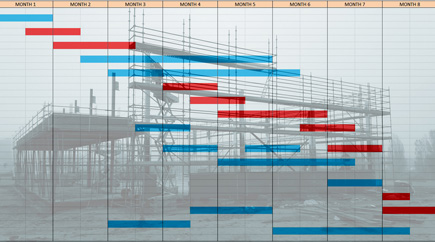Why make websites accessible?
Posted by Andrew Baird, on 25th May 2020, in Accessibility
When you’re designing a webpage or website, there are many considerations. If you’re not familiar with accessibility, it can appear to be an optional and onerous burden. It is not and here’s why.
There are strong moral and ethical reasons for making your website accessible.
Not having an accessible website is discriminatory – it is ableist. Treating people differently because they fall outside the mainstream on physical or mental abilities is discriminatory. Creating websites with barriers to universal access is equivalent to building public libraries with step-only access – we are used to public buildings providing for access by people with disabilities, so why allow websites to have barriers? 
Tim Berners-Lee, the inventor of world wide web, has strong views on universality: “The power of the Web is in its universality. Access by everyone regardless of disability is an essential aspect.”
On the positive side, equal access is inclusive and society’s moral tide continues to move in an inclusivity direction. Making your website accessible contributes to the greater good as it allows everyone to access it.
The moral position is strengthened by regulations and laws
Where morals and ethics are not powerful enough to provide compliance on their own, the law steps in. Most developed nations now have laws and regulations for equality and digital accessibility. For example, in USA there is ADA, which has been repurposed to legislate accessibility requirements for websites. There is also Section 508 (of the US Rehabilitation Act) – covering the requirement for government websites to be accessible. Here in UK the law is defined under the Equality Act – covering both the public and private sector – where not providing a service to a disabled person, while providing it to able bodied people is unlawful discrimination. Public sector bodies are further covered under the Public Sector Bodies (Websites and Mobile Applications) (No. 2) Accessibility Regulations 2018 which state that you must make your website and mobile app “perceivable, operable, understandable and robust”. These refer directly to the accessibility principles defined in the W3C/WAI (World Wide Web Consortium/Web Accessibility Initiative) that have become the de facto standards for assessing accessibility. In the EU there is the Web and Mobile Accessibility Directive. Both in UK and in EU, the trend is that regulations which have begun by applying only to the public sector always move to include the private sector over time. The EU is currently working on wider legislation under the European Accessibility Act which will legislate over both the public and private sectors.
The business case
When much time and expense is spent tweaking SEO parameters to increase sales by 1 or 2%, a website with accessibility issues could be shutting out 20% of the population (UK Government figures state that 20% of the population have one or more disabilities). Older people, as well as owning more assets and having more disposable income, tend to have more disabilities and more issues with websites (Figures from Scope show that 45% of pension-age adults are disabled). See our previous blog for more information on the issues older people have with websites: “Why don’t Older People Engage with your Website?” Accessible websites can have a wider user base and can have as a result, increased sales.
Additionally, publicly committing to ensuring you have an accessible website proves a commitment to CSR (Corporate Social Responsibility) – with all the incumbent positive effects on brand image and reputation.

It is fair to counter that making a website accessible has a cost – an additional cost on top of the planned and understood costs for design and development. However, like most build projects, retrospectively implementing accessibility in a website is more expensive than planning and implementing it from the start. Properly planned, accessibility need not add excessive costs, and can provide a route to increased revenues.
When you bring together the moral, legal and business cases most people ask – “why haven’t we considered accessibility as a must-do before?”
Websites are made accessible by design, not chance. If you’re thinking about implementing accessibility on a current website, or a planning a new one, see how Accessibility Consultancy can help you.








